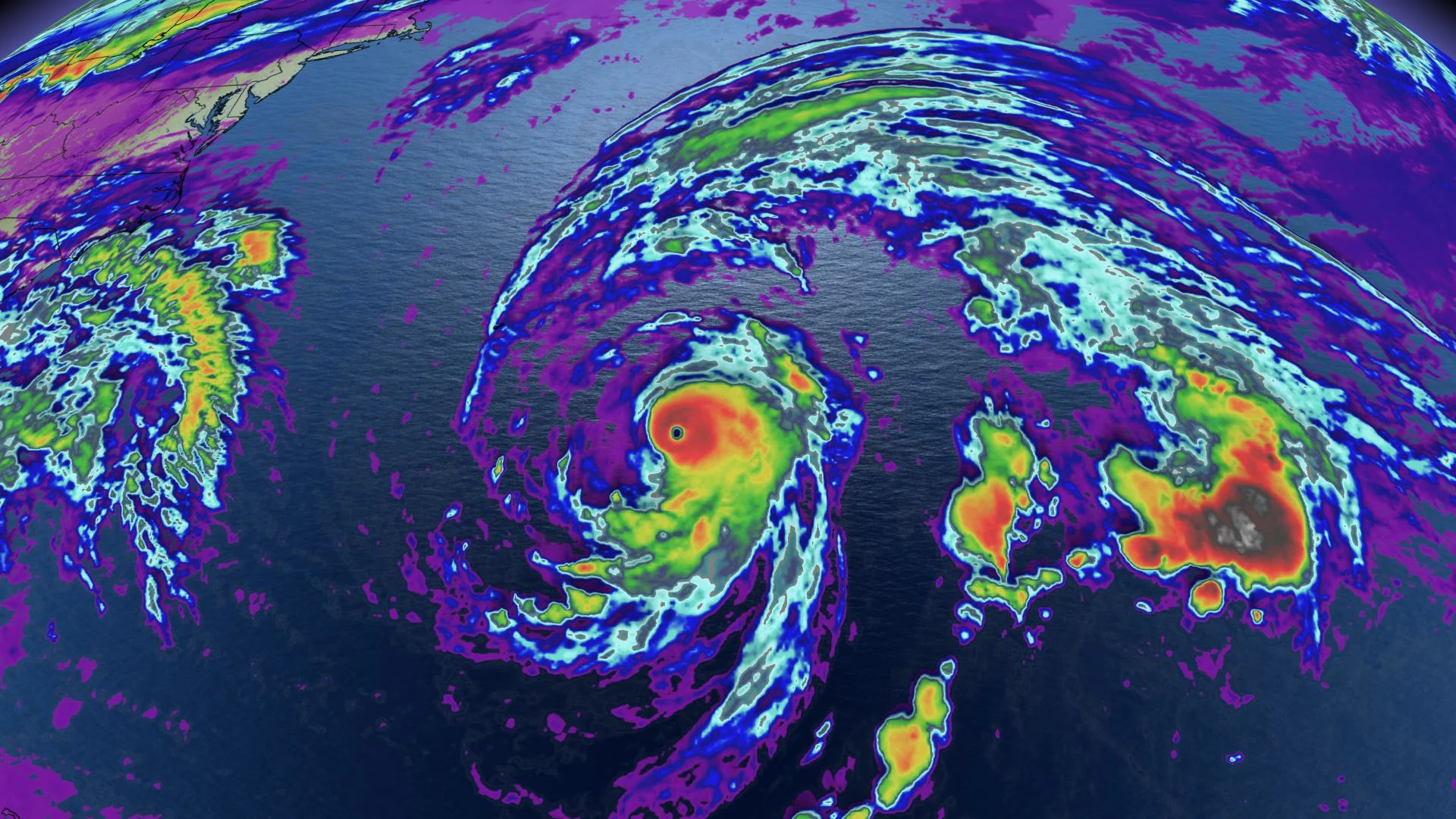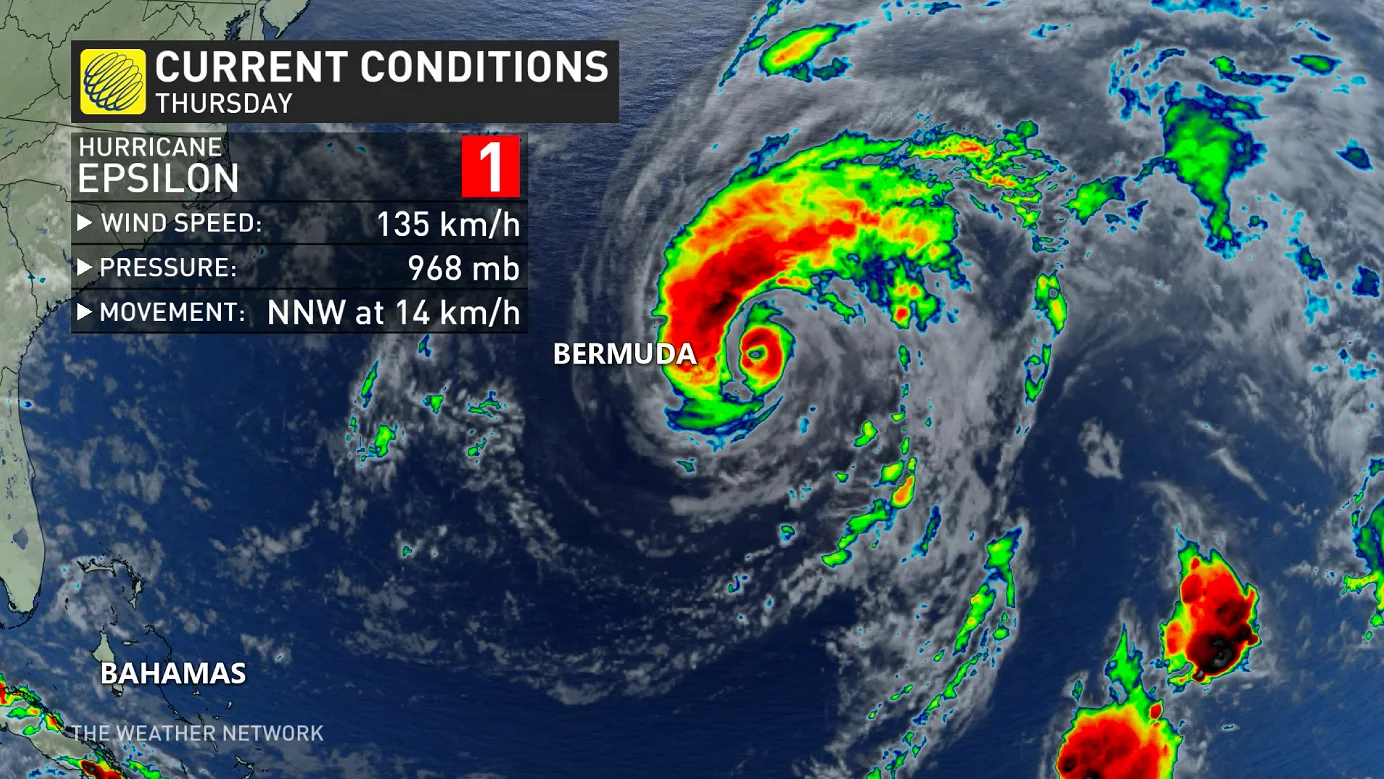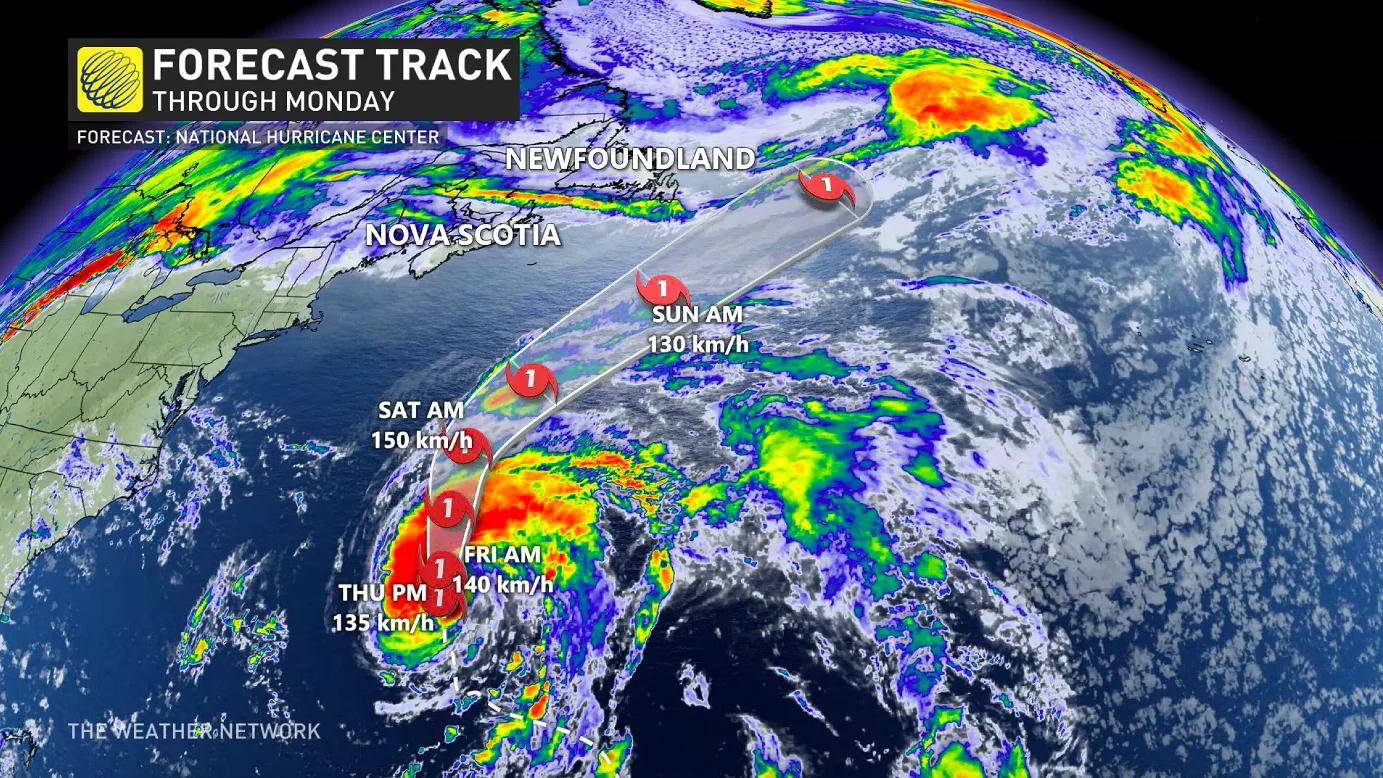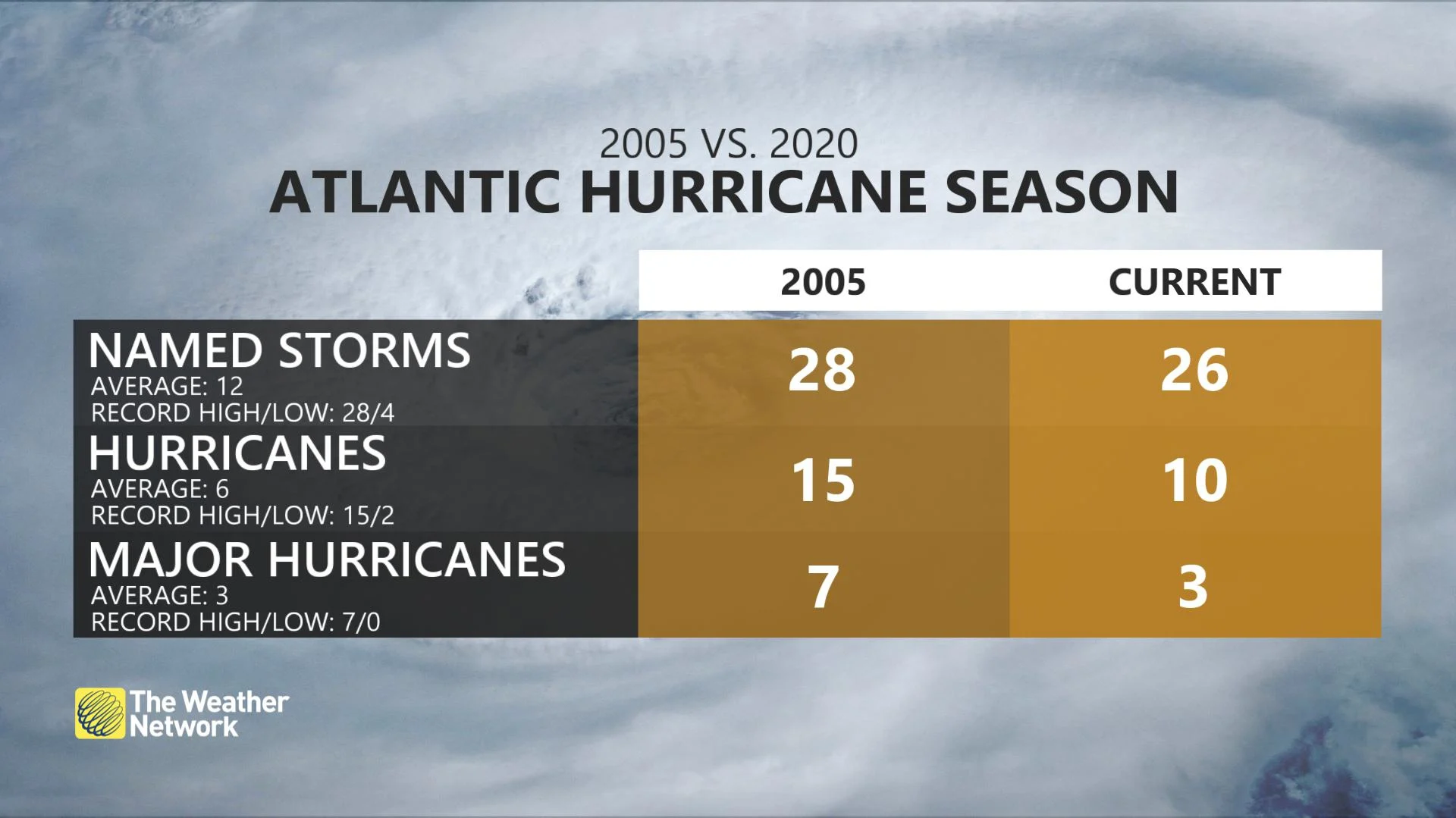
Epsilon prompts warnings over Bermuda, watching Newfoundland this weekend
Hurricane Epsilon continues to churn in the mid-Atlantic, with a tropical storm warning still in effect for Bermuda as the storm, though not likely make landfall on the island, is expected to have an impact.
After quickly intensifying and becoming a major Category 3 hurricane Wednesday evening, Epsilon's winds slightly decreased early Thursday, dropping it down to Category 2 status and then further weakening to a Category 1 storm. As of 8 p.m., it boasted sustained winds of 135 km/h.

The centre of Epsilon was expected to make its closest approach to, though still well east of, Bermuda later Thursday evening.
Epsilon is expected to accelerate as it tracks northeastward through the weekend, and though it has weakened from its mid-week peak, forecasters say the storm is likely to retain hurricane status through at least the weekend.
Though far from the Caribbean, the storm is powerful enough to generate large swells as far away as the Bahamas, the Greater Antilles, and the Leeward Islands, along with Bermuda. The U.S. National Hurricane Center (NHC) says strong swells are expected to reach parts of the U.S. East Coast as well as Atlantic Canada.

Such swells will be particularly noticeable along south-facing coastlines, with some rain showers possibly also clipping Newfoundland.
"Tropical moisture will stream well north of the storm and interact with an approaching cold front," says Weather Network meteorologist Dr. Doug Gillham. "This will bring heavy rain to southern and eastern Newfoundland late Saturday night with 20-40+ mm expected."
The hurricane itself is likely to stay far out to sea as it moves south of Atlantic Canada.
RECORD HURRICANE SEASON
With Epsilon, this year creeps closer to uncharted territory. The current record for the most active season was set in 2005, which went as far as Zeta, named for the sixth letter in the Greek alphabet after the traditional name list was exhausted. That storm actually developed well after the official hurricane season in late December and lingered a few days into January before finally dissipating.

Delta, the fourth storm to be given a name from the Greek name list this year, already made landfall in Louisiana as a strong Category 2 hurricane earlier this month. It was especially notable, as it roared from a named tropical storm to Category 4 hurricane in less than two days. That made it the fastest strengthening storm since the mid 19th Century. At its peak, it was also the most powerful Greek-named storm on record.
Epsilon never made it to that strength, but it is still remarkable in that it is the furthest northeast that an Atlantic tropical cyclone has strengthened so quickly this late in the season.






